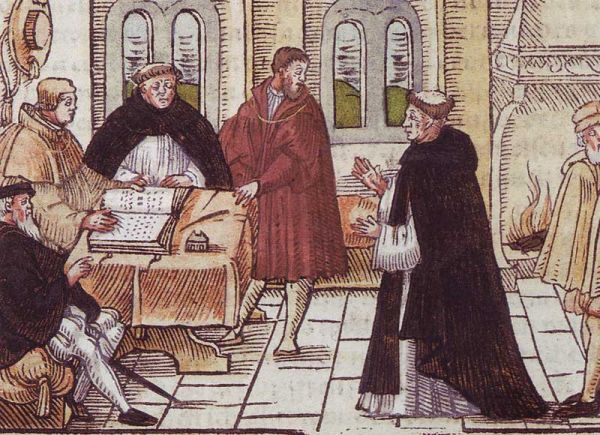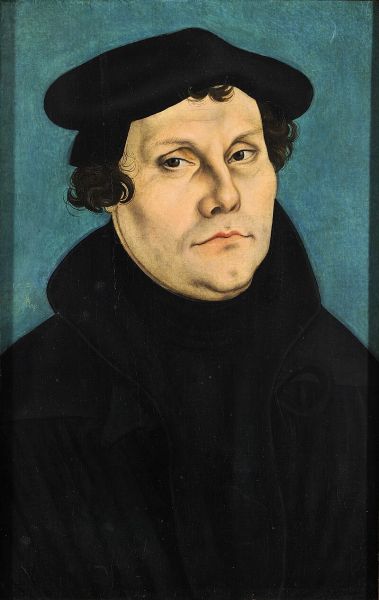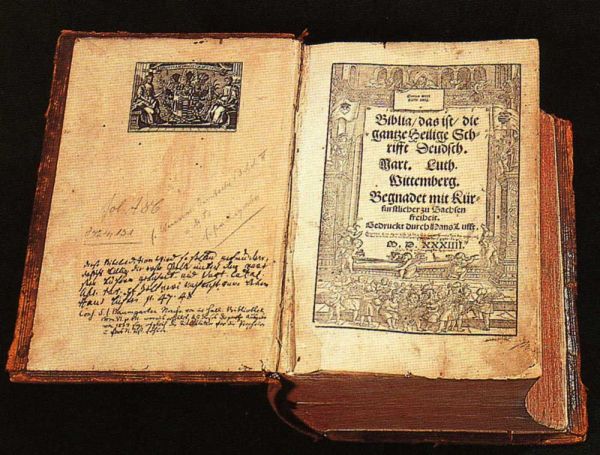The Reformation: Before and After
The Reformation—Before and After
To recap, the Reformation in Germany challenged important presumptions that had guided the Western Church up to that point: It overturned the authority of the Pope and of Church Councils, and it established the Bible as the primary interpreter of the Lord's intentions and character.
Martin Luther's translation of the Bible into German gave common, German-speaking people the ability to study the Scriptures themselves. The ethos of the Reformation and the reading of the Scriptures also gave average people the burden of an individual conscience. The transition created a dilemma in the average person—from a "before" mindset to an "after" mindset:
- "Before": People let a higher power—the hierarchy of the Church—judge them. The Church served as an intermediary and intercessor between them and the Lord. They let the Church assume responsibility for them. The Church defined right and wrong to its Believers, and determined the forgiveness of their sins. The Church served as shepherd, the congregation as the flock of sheep it protected.
- "After": The people dealt with the Lord directly. In a sense, Believers ate from the Tree of Knowledge, so they had to decide about good and evil by themselves. The loneliness of it, the existential angst of taking responsibility for their souls, gave them a big responsibility—rather than relying on the judgment of church personnel to make those decisions for them, they had to rely on their own interpretation of Scriptures.
- Among other things, they read the historical books of the Old Testament, which juxtaposed the religious world of people who believed in the God of Israel, against the hard, amoral world of monarchical politics. Often, wicked men driven by a lust for power led the People of Israel. The lust for power corrupted them and coaxed the people to worship other gods. Each book of the Old Testament teaches the lessons of history. Bernard Malamud wrote that the Bible creates human experience, "or when will history begin?" And thanks to the Reformation, the common people had a history and perspective.
- In a creepy way, the two realities of "before" and "after" merge—but co-exist uneasily. If you wade through the smoky rhetoric, you will find that the front-line of combat remains at the point of departure, where it has been since time immemorial.
- The Reformation led governments toward constitutional law and away from rule by monarchs. The American Founder John Adams concurred on this point. He wanted rule by law and not rule by a man for his young country, the United States. He said, "I am more and more convinced that man is a dangerous creature, serving passions, interest, and power, more than the public interest."
- The Reformation suggested an escape from group-think and "Community" toward individual consciousness and initiative. With a separate identity, Luther's new Church had to create separate institutions, hierarchies to man those institutions. They never quite succeeded in creating a separate identity. The name that has come down to us reminds us of the original mindset. The new Church calls itself "Protestant", to remind everyone that it started as a reform movement inside the Roman Catholic Church, to protest its practices.

- The playwright John Osborne paints, however, a sobering picture of this "before" and "after" in his play Luther. The Cardinal de Veo, also known as "Cajetan", confronts Martin Luther in order to make him aware of the consequences of his Reformation:
Cajetan: Can't you see what could happen out of all this? Men will be cast out and left to themselves forever, helpless and frightened. . . .
That's what would become of them without their Mother Church—with all its imperfections. . . .
We live in thick darkness. . . . How will men find God if they are left to themselves—each man known only to himself?
Martin: They'll have to try.
Apparently a lot of Europeans wanted to try to live without Papal intervention and direction, but the confrontation between these two men exppresses the dilemma in every man—to belong or not to belong; to trust someone else to lead or to take the initiative himself.


